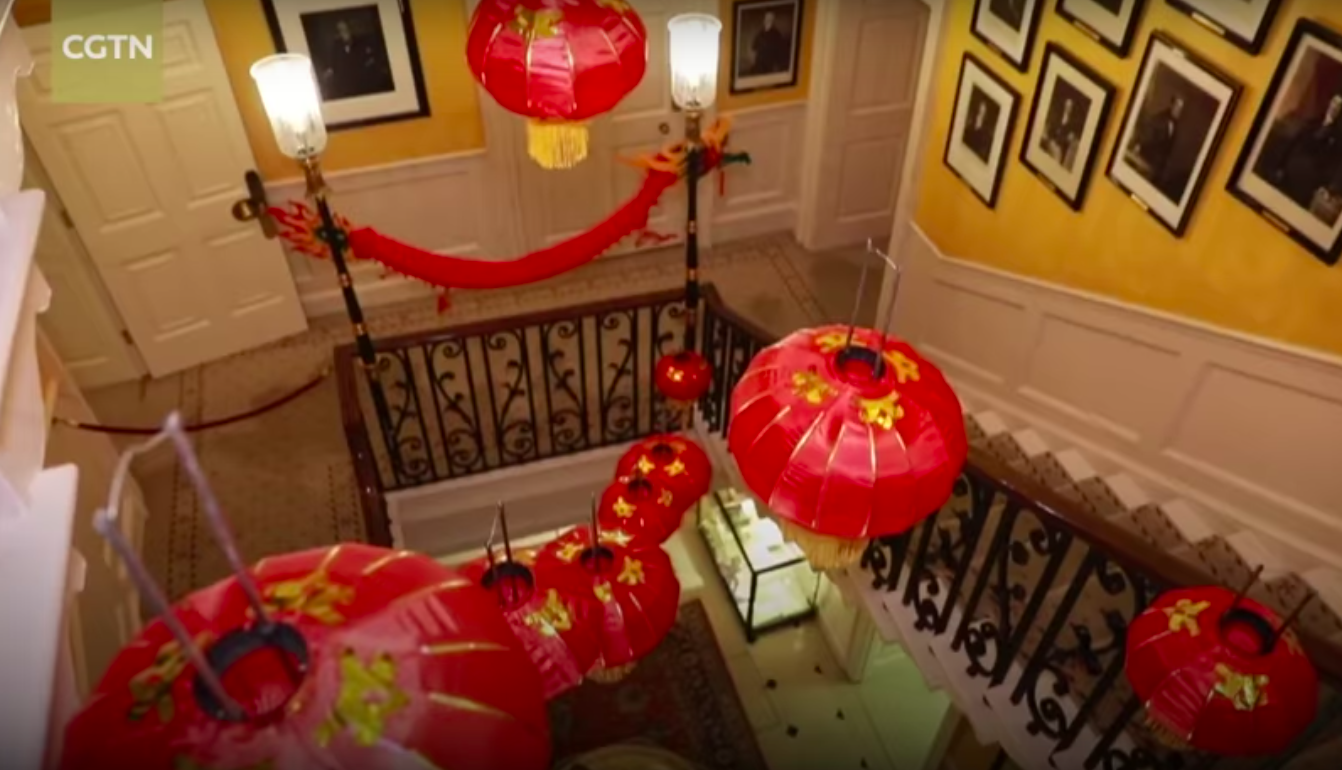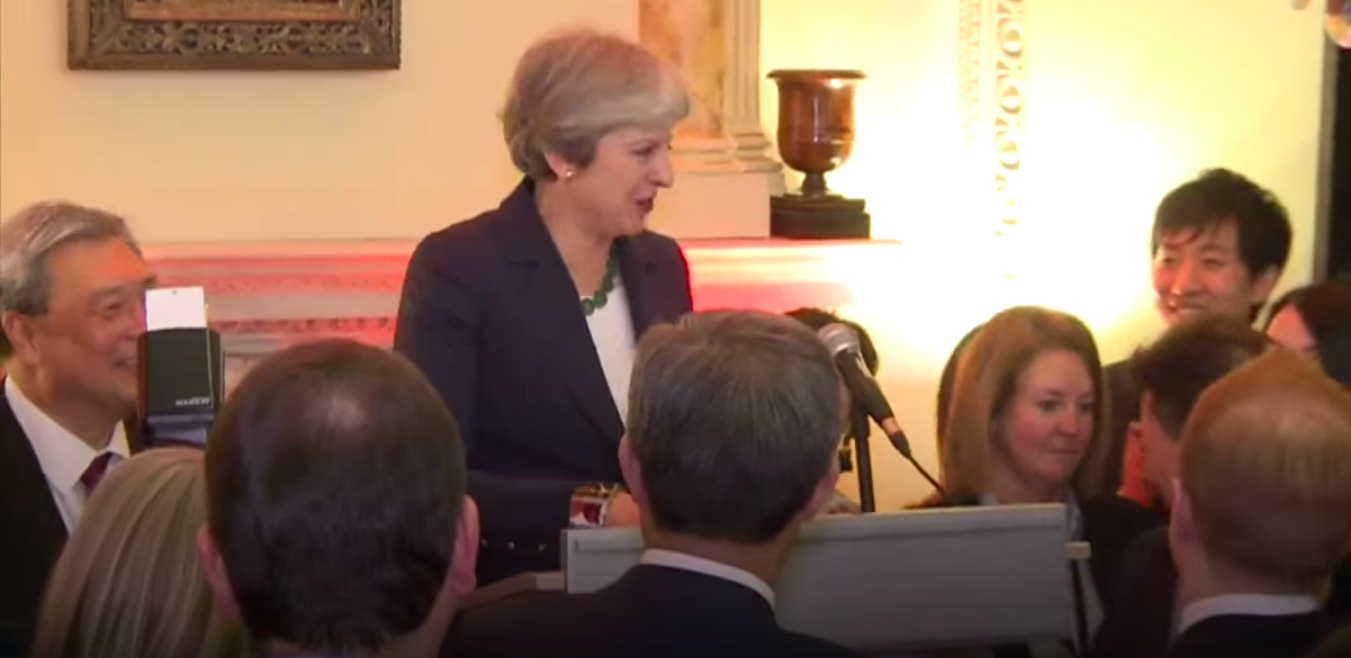Prime Minister of the United Kingdom, Theresa May, welcomed Chinese students to the Prime Minister's Office in London on Feb. 21.
In what is seen as a bid to woo China, the building at 10 Downing Street temporarily accommodated bright red Chinese lanterns for the Chinese New Year reception alongside the usual decorations of portraits of past prime ministers.
 Screenshot via CGTN/YT
Screenshot via CGTN/YT
May speaks Mandarin
Perhaps the highlight of the reception was May wishing the attendees a "Happy New Year" in Mandarin.
The audience, wowed by her attempt -- which wasn't half bad considering the fact that she's a lao wai -- clapped and cheered enthusiastically.
You can watch the video of the British Prime Minister speaking Mandarin here:
UK courting China
The UK currently sends 3.1 percent of its exports to China.
This is about half of its imports from China, which make up 7.2 percent of its total imports, according to official data.
But courting China is high on UK's agenda.
This is following the 2016 referendum decision to leave the European Union (EU) and the UK reinventing itself as a global trading nation.
May met with Chinese President Xi in early February 2018, making clear that the UK will pursue its own trade policy with China and other nations post-Brexit.
Her trip to China was considered a success, bagging S$16.8 billion worth of business trade deals.
Era of UK-China relations
May also said, as they marked the "Year of the Dog" and a "golden era of UK-China relations", it was "great to welcome people from all parts" of the country to celebrate Chinese New Year.
She added that UK-China relations are not simply limited to economic and trade relations, but also encompass opportunities for further cultural exchanges.
There are currently 150,000 Chinese nationals studying in the UK.
[related_story]
Post-Brexit UK "less attractive" to China
However, her eagerness to initiate trade talks with China underscores Britain's weakness stemming from the Brexit process, according to Forbes.
And China might not be as keen as the UK in becoming steady partners.
According to economist Jianwei Xu of China Natixis, China is adopting a "wait-and-see" approach at the moment, or at least until a final Brexit deal before making any big trade commitment.
He added that the "golden era" between the UK and China was established while the UK was still part of the EU.
Even with Britain voicing its interest in closer cooperation with China over its prized One Belt One Road (OBOR) project, May has yet to formally endorse the scheme.
This provides the UK with less leverage than before.
UK losing financial hub attractiveness
With the Brexit process constantly looming in the background, large financial institutions have been contemplating moving to other European financial hubs.
This leaves the future of London as a major financial hub in jeopardy.
UK might then be a less attractive international base for RMB internationalisation.
While May hopes to secure a free trade agreement before leaving the European Union in 2019, she might find the goal difficult to accomplish.
Top image via CGTN/YT
If you like what you read, follow us on Facebook, Instagram, Twitter and Telegram to get the latest updates.
